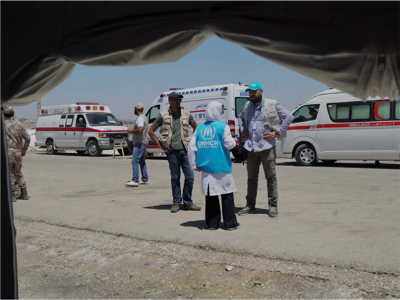Cover image: © UNICEF/UN
Appropriate nutrition status is underpinned by determinants across many sectors including water, sanitation and hygiene, health and food security, amongst others. Because of this, close coordination with other clusters is essential in order to ensure a holistic response in a nutrition emergency. Collaboration may take many forms, from information sharing on key indicators and joint analysis to joint programming or action planning. A joined-up response is key to the cluster approach.
Learning objectives
By the end of this module, you will be able to:
- Discuss the importance of inter-cluster coordination to effective nutrition programming
- Describe the characteristics of the inter-cluster coordination group (ICCG)
- Explain the role of the NCC and cluster partners in the formulation of an effective inter-cluster response
- Identify ways to proactively engage with and involve other clusters in operational work
Audience
This module is an introductory-level course aimed at anyone who is interested in developing skills and knowledge in nutrition cluster coordination in humanitarian contexts, and who needs to engage with humanitarian architecture on this topic. It is part of the recommended learning path for sub-national nutrition cluster coordinators aiming to progress to national-level roles.
Length
It should take you about 30 minutes to complete this self-paced course.
Methodology
This course is composed of a single short self-paced animated module, including various examples and activities.
Structure
Introduction
Lesson 1: The importance of inter-cluster coordination
10 mins
Lesson 2: The inter-cluster coordination group (ICCG)
5 mins
Lesson 3: Roles and responsibilities of the nutrition cluster team within in ICCG
10 mins
Summary
Contact details
For technical issues, you can contact https://www.nutritioncluster.net/Ask_question
